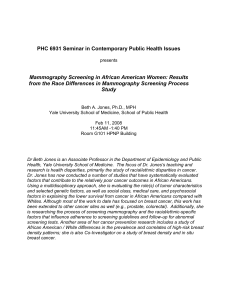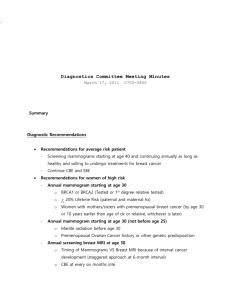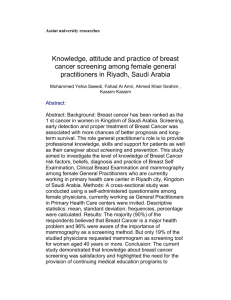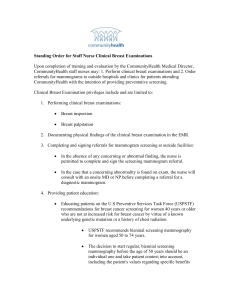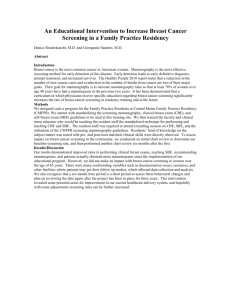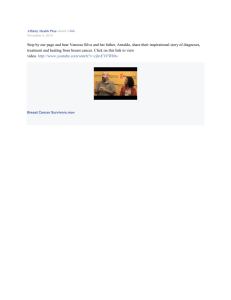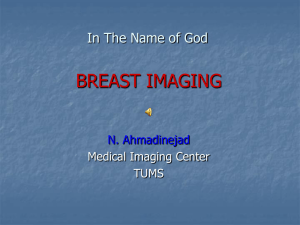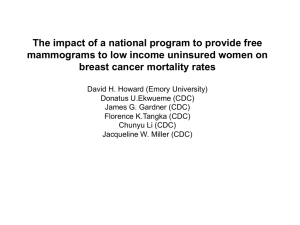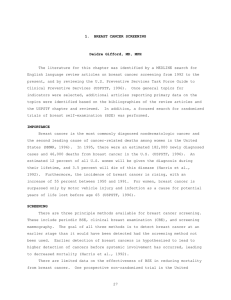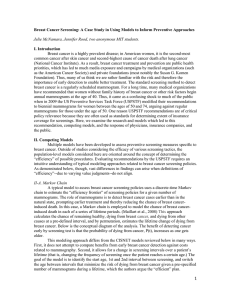Industrial and Systems Engineering Seminar Series
advertisement
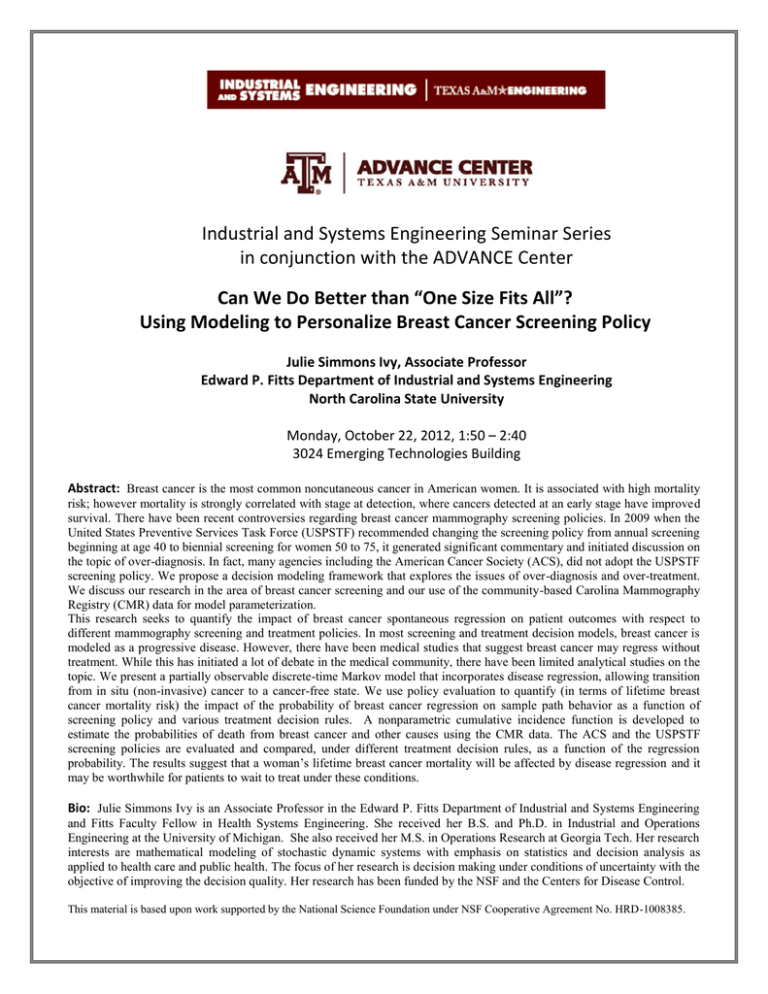
Industrial and Systems Engineering Seminar Series in conjunction with the ADVANCE Center Can We Do Better than “One Size Fits All”? Using Modeling to Personalize Breast Cancer Screening Policy Julie Simmons Ivy, Associate Professor Edward P. Fitts Department of Industrial and Systems Engineering North Carolina State University Monday, October 22, 2012, 1:50 – 2:40 3024 Emerging Technologies Building Abstract: Breast cancer is the most common noncutaneous cancer in American women. It is associated with high mortality risk; however mortality is strongly correlated with stage at detection, where cancers detected at an early stage have improved survival. There have been recent controversies regarding breast cancer mammography screening policies. In 2009 when the United States Preventive Services Task Force (USPSTF) recommended changing the screening policy from annual screening beginning at age 40 to biennial screening for women 50 to 75, it generated significant commentary and initiated discussion on the topic of over-diagnosis. In fact, many agencies including the American Cancer Society (ACS), did not adopt the USPSTF screening policy. We propose a decision modeling framework that explores the issues of over-diagnosis and over-treatment. We discuss our research in the area of breast cancer screening and our use of the community-based Carolina Mammography Registry (CMR) data for model parameterization. This research seeks to quantify the impact of breast cancer spontaneous regression on patient outcomes with respect to different mammography screening and treatment policies. In most screening and treatment decision models, breast cancer is modeled as a progressive disease. However, there have been medical studies that suggest breast cancer may regress without treatment. While this has initiated a lot of debate in the medical community, there have been limited analytical studies on the topic. We present a partially observable discrete-time Markov model that incorporates disease regression, allowing transition from in situ (non-invasive) cancer to a cancer-free state. We use policy evaluation to quantify (in terms of lifetime breast cancer mortality risk) the impact of the probability of breast cancer regression on sample path behavior as a function of screening policy and various treatment decision rules. A nonparametric cumulative incidence function is developed to estimate the probabilities of death from breast cancer and other causes using the CMR data. The ACS and the USPSTF screening policies are evaluated and compared, under different treatment decision rules, as a function of the regression probability. The results suggest that a woman’s lifetime breast cancer mortality will be affected by disease regression and it may be worthwhile for patients to wait to treat under these conditions. Bio: Julie Simmons Ivy is an Associate Professor in the Edward P. Fitts Department of Industrial and Systems Engineering and Fitts Faculty Fellow in Health Systems Engineering. She received her B.S. and Ph.D. in Industrial and Operations Engineering at the University of Michigan. She also received her M.S. in Operations Research at Georgia Tech. Her research interests are mathematical modeling of stochastic dynamic systems with emphasis on statistics and decision analysis as applied to health care and public health. The focus of her research is decision making under conditions of uncertainty with the objective of improving the decision quality. Her research has been funded by the NSF and the Centers for Disease Control. This material is based upon work supported by the National Science Foundation under NSF Cooperative Agreement No. HRD-1008385.
